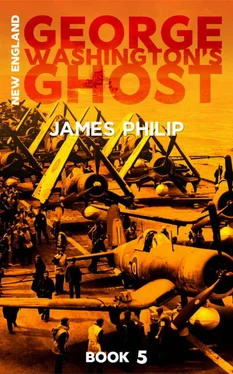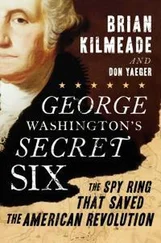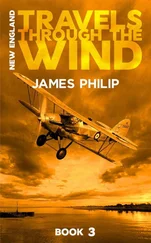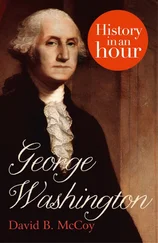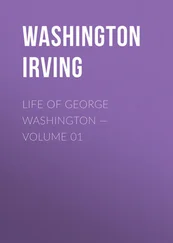Of the five main Hindu castes in India – each of which sub-divided into tens, hundreds and possibly thousands of smaller divisions virtually incomprehensible to Europeans – the Brahmins, the priests and teachers, and the Kshatriyas, the rulers and warriors, formed only a tiny proportion of the population but so long as the Raj kept them ‘onside’, whatever the hundreds of millions of Vaishyas, what in the United Kingdom and elsewhere in the Empire would be regarded, generically, as the middle classes, and the working or lower class, Shudras, effectively the labouring poor, and the Dalits, the ‘outcasts’, more commonly known as ‘untouchables’, who did all the most menial work in the society, thought of the British, or the way their great, sprawling country was being run, really did not matter a fig.
While the King was no advocate for this paradigm, which he found deplorable, as more than one of his ministers had said to him down the years: ‘We are where we are, sir.’
More to the point, doing the right thing was not, and never had been top of the list of any minister at the Colonial Office where the unofficial motto had always been was: ‘Non situ peius!’
Which was colloquially translatable to the majority of the King’s subjects without the benefit of a classical education as: ‘ Don’t make the situation worse! ”
Thus, the Guyanese situation had been allowed to fester, its root causes unaddressed and frankly, ignored and even if one accepted that there was never a right time to lance a boil; it was far too late now.
Unfortunately, in the prevailing circumstances risking setting sensible but in terms of imperial realpolitik, positively Quixotic territorial adjustments to the political geography of the broader Empire – like, for example, sorting out the long-standing ‘Guyanese Question’, an FCO headache for well over half-a-century – always ran into the sand.
Quick sand, that was, meaning that in the circumstances of the present war the Empire was left holding a huge, indefensible acreage of land far from home which nobody, literally nobody in the British Isles except a few Colonial Office stalwarts, knew anything about, or cared a damn!
War, as any historian will tell one, has a nasty habit of pressing the fast forward button of human affairs, invariably with the predictability of a chess board kicked over in the middle of a long game. While it might be possible to remember where the pieces had been before the great upset, predicting where they actually landed was another matter entirely!
And now it was far too late to mitigate the consequences of decades of Imperial inertia.
The unthinkable had happened.
The war was barely a month old and already it seemed if not yet certain, then at least possible that centuries-old British suzerainty over its island empire in the West Indies was collapsing, like dominoes…
The car ground to a halt.
The King snapped out of his introspection.
Guessing as much, his wife half-smiled.
“I think we’ve arrived, Bertie,” the Queen murmured.
Monday 24th April
William Penn House, Philadelphia
It was election time in the late spring in the Crown Colony of Virginia but not in Pennsylvania. Throughout the First Thirteen and their laggardly Johnny-com-lately, and depending on how one counted these things also Vermont and Maine fellow ‘founding’ colonies of North America – there was constant argument about who was first and last and suchlike in olden times – making up the ‘historic’ East Coast-New England Commonwealth, there was absolutely no consensus as to which was the best time of year for elections, or for that matter, much else. Which was probably why each individual colony so resented it when London, or its representative, the Governor of New England, in Philadelphia, sought to inflict unifying political and administrative protocols and standards.
Granted, these days, more or less everybody grudgingly agreed that whether they liked it or not, there were certain advantages to having a uniform Commonwealth railway gauge, Brunel’s so-called ‘standard-medium-permanent way’, uniform systems of measurement, the ‘Imperial’ system of feet, inches and yards, etcetera, weights and underlying commonalities in jurisprudence, and so forth.
Unfortunately, where there had always been violently articulated divergence, was on the subject of rates and the appropriateness of local and commonwealth-wide taxation. This was hardly odd because although each colony claimed to have its own ‘take’ on the subject – none of them liked paying it (tax, that was), with some claiming Biblical justifications – in general, and as it was key to the whole topic, upon how exactly war should be waged on the shores, and upon the seas around, New England in particular.
Which, counter-intuitively, was why the Chairman of the Virginia Colonial Legislative Council, Roger Emerson Lee III, presently the Director of the Organisation of the Chairmen – there were no women, nor had there ever been – of the sovereign Colonial Legislative Councils of the First Thirteen, plus Maine and Vermont, had come to Philadelphia, in Pennsylvania, to make the opening set-piece speech of his campaign to be re-elected to the VCLC back in Richmond approximately six weeks hence. Just turned fifty-seven years old, handsome in that traditional fleshy Virginian planter fashion, and scion of one of the five wealthiest ‘old’ dynasties in New England, he was vain, thin-skinned and unfussy about detail, or for that matter about letting the truth get in the way of a handy epithet, and operated as a rule, as if he had a God-given entitlement to do… well, pretty much whatever he wanted to do, whenever he wanted to do it.
Again, counter-intuitively, in recent years people tended to remark that his was never a thing which had served him as favourably as by rights it ought, with the vapid society women who tended to flutter around the sons of old money in in either Virginia, or the seat of imperial power in Philadelphia, for although he had had many mistresses, nowadays they circled, ever-ready to hand a juicy new barb to journalists and the great man’s political opponents.
Lately, those numerous opponents had observed, perceptively, that the key thing which best characterised the inner man was that with the coming of the war, Roger Lee saw only opportunity. Opportunities to smite his enemies, to aggrandise himself with fat new military contracts and to paint himself as the great national leader he but hardly anybody else, had always believed himself to be. Now, as the recently anointed Director of the Organisation of Chairmen of the Colonial Legislatures of the Fifteen – which had never been a constitutionally recognised position – which made him the spokesman for his fellow Chairman of the Chairman bar one – Florida – of the Crown Colonies that actually mattered, he was convinced he was finally making progress!
That day, his audience was a select one.
By invitation his Whig allies, and a sprinkling of his newly acquired, unlikely philosophical bedfellows, racist Christian fundamentalists who demanded ‘separate development’, or Getrennte Entwicklung , as the more extreme Lutheran sects insisted on calling the policy, filled the old hall that day, sat in cliques amongst the great and the good of the nexus of the banking, industrial and commercial affairs of New England. In fact, Roger Lee’s supporters were hugely outnumbered by the real movers and shakers of the Commonwealth, the men who controlled the steel mills and factories, the banks, the railways, who oversaw the giant construction combines carving the permanent way and two and four-lane tarmac roads into the wilderness of the West, and increasingly, the men who would build the war planes and land cruisers, the ships and the bombs which would win this latest contretemps with the ‘damned Spaniards’.
Читать дальше
